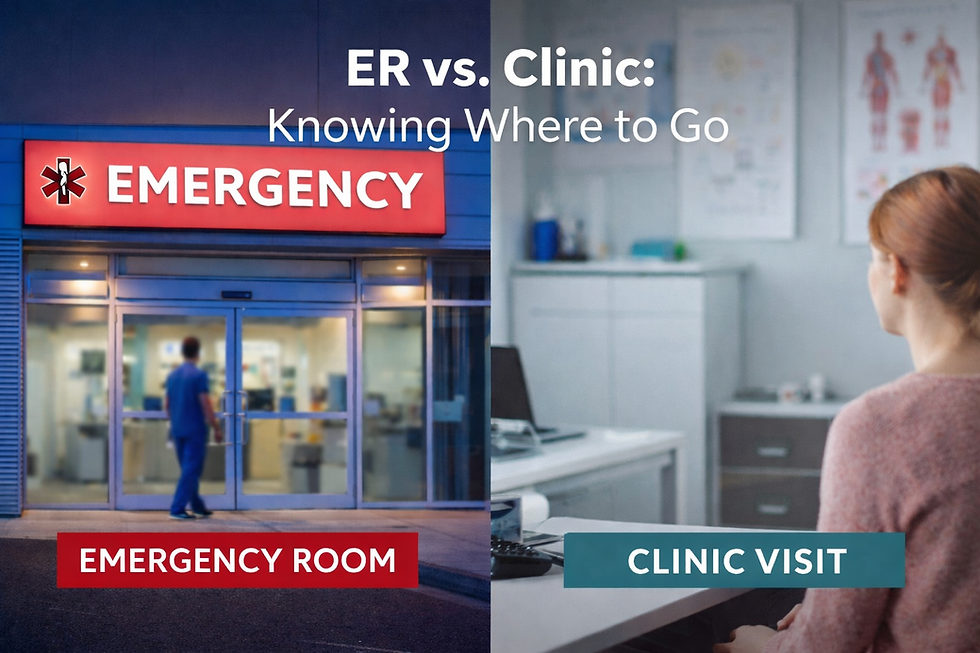Heart Health at Every Age: What to Watch For in Your 30s, 40s, 50s, and Beyond
- Kiran Reddy
- Oct 24, 2025
- 2 min read

Your heart is one of the hardest working muscles in your body — beating more than 100,000 times a day to keep you alive and energized. But as the years pass, what your heart needs changes. Understanding how to care for your heart at each stage of life is one of the most powerful steps you can take toward long-term wellness.
At Dr. Kiran Reddy’s one-stop cardiology clinic, we see patients of all ages — from those beginning preventive care in their 30s to others managing complex heart conditions later in life. Wherever you are in your journey, here’s what to watch for and how to keep your heart strong through every decade.
In Your 30s: Build the Foundation
Your 30s are the perfect time to start thinking seriously about prevention. Many people feel healthy, but this decade often sets the tone for long-term heart health.
What to focus on:
Know your numbers: Get your blood pressure, cholesterol, and blood sugar checked regularly.
Get moving: Aim for 30 minutes of exercise most days of the week.
Eat smart: Limit processed foods and focus on whole grains, fruits, vegetables, and lean proteins.
Manage stress: Long work hours and family responsibilities can increase stress, which affects your heart.
Even if you feel fine, a baseline cardiac evaluation can help catch early warning signs and establish healthy habits before problems develop.
In Your 40s: Watch for heart Health Warning Signs
As metabolism slows and life gets busier, heart risks can begin to rise in your 40s. This is when blood pressure, cholesterol, and weight can start creeping upward without noticeable symptoms.
What to focus on:
Schedule annual checkups with your primary care provider or cardiologist.
Address sleep apnea, fatigue, or shortness of breath — these could signal heart strain.
Make time for stress management through exercise, mindfulness, or hobbies.
Avoid smoking and limit alcohol, both of which increase heart disease risk.
If heart disease runs in your family, Dr. Reddy may recommend additional screenings or imaging tests to monitor for early plaque buildup or structural issues.
In Your 50s: Prioritize Prevention and Screening
By your 50s, hormonal changes, lifestyle factors, and genetics start to play a larger role in cardiovascular health. This is also the decade when many heart conditions — such as hypertension, arrhythmias, or coronary artery disease — may first appear.
What to focus on:
Stay consistent with medications prescribed for blood pressure or cholesterol.
Schedule routine screenings, such as stress tests, echocardiograms, or calcium scoring scans.
Pay attention to symptoms like chest discomfort, dizziness, or swelling in your legs.
Women entering menopause should be especially mindful, as declining estrogen can increase heart risk.
Dr. Reddy’s clinic offers comprehensive testing and treatment options in one location, making it easier to manage your heart health proactively.




Comments